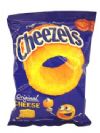|
ESL Forum:
Techniques and methods
in Language Teaching
Games, activities
and teaching ideas
Grammar and
Linguistics
Teaching material
Concerning
worksheets
Concerning
powerpoints
Concerning online
exercises
Make suggestions,
report errors
Ask for help
Message board
|
ESL forum >
Ask for help > Can "believes" be the plural form of belief?
Can "believes" be the plural form of belief?
|

Zsuzsapszi

|
Can "believes" be the plural form of belief?
|
|
Hi again,
This time I need your kind help again. Hope you have some time to answer my question.
As I learnt all nouns ending with -f or -fe get -ves endings in plural.
But I came across this example belief - beliefs.
I can �t understand why it is right. And can believes be the plural form as well?
Hope you can give me a good explanation to my question.
Thanks in advance.
Hugs,
Susan |
18 Jan 2011
|
|
|
|

viccxx

|
|
Dear Susan,
the plural of belief is beliefs. The rule is correct, but it has some exceptions, like roof-roofs, chief-chiefs, and belief -beliefs....
|
18 Jan 2011
|
|
|

erikaandel

|
Hello, I believe some words just don �t follow the rules, they �re just exceptions.
The plural of the noun belief is beliefs.
Some nouns that end in �f � are exceptions to the rule that states that �f � needs to be changed
to a �ve � and add �s � (e.g. chief - chiefs).
The word believes is used as a verb, e.g. "He has many beliefs in which he believes."
More examples: cliff cliffs , roof roofs
I hope it helps  Erika Erika
|
18 Jan 2011
|
|
|

ldthemagicman

|
|
Dear Susan,
"As I learnt all nouns ending with -f or -fe get -ves endings in plural".
Susan, THEY DO NOT!
Quirk (and 5 other Professors), 2010, "A Comprehensive Grammar of the English Language" list the Rules.
Nouns which take a Plural ending in �ves �, calf: calves; elf: elves; half: halves; knife: knives; leaf: leaves; life: lives; loaf: loaves; self: selves; sheaf: sheaves; shelf: shelves; thief: thieves; wife: wives; wolf: wolves.
Nouns which take 2 possible Plurals, ending in �s � and �ves �, dwarf: dwarfs/dwarves; hoof: hoofs/hooves; scarf: scarfs/scarves; wharf: wharfs/wharves.
Other nouns ending in f(e), take regular plural �s �, belief: beliefs; chief: chiefs; cliff: cliffs; proof: proofs; roof: roofs; safe: safes.
The answer from VICCXX is perfectly correct!
I hope that this helps you.
LES |
18 Jan 2011
|
|
|

pilarmham

|
|
Les, your explanations are definitely the most thorough, rigorous and credible of all. You �re one in 1,000 million! |
19 Jan 2011
|
|
|

PhilipR

|
|
English is indeed a language that has plenty of exceptions. Think about this:
leaf -> leaves, BUT the Toronto Maple Leafs (a hockey team) life -> lives, BUT a lowlife -> lowlifes |
19 Jan 2011
|
|
|

cheezels

|
|
Do you know in NZ we say rooves not roofs? I didn �t know we were different until I moved to Europe!
|
19 Jan 2011
|
|
|

magneto

|
Yep, it �s beliefs.
@Les: Your answers are always the best!
Needless to say, I try to keep an archive of them...You never know when they might come in handy: Students never seize to ask and we never seize to wonder
@Philip and Cheezels: Interesting info! Thanks for sharing!
|
19 Jan 2011
|
|
|








 Erika
Erika








